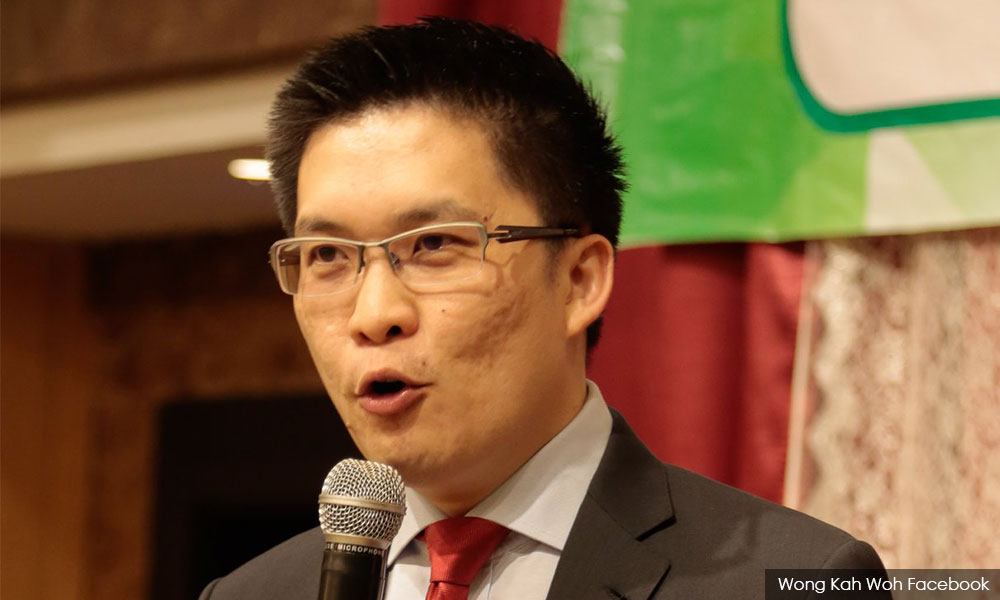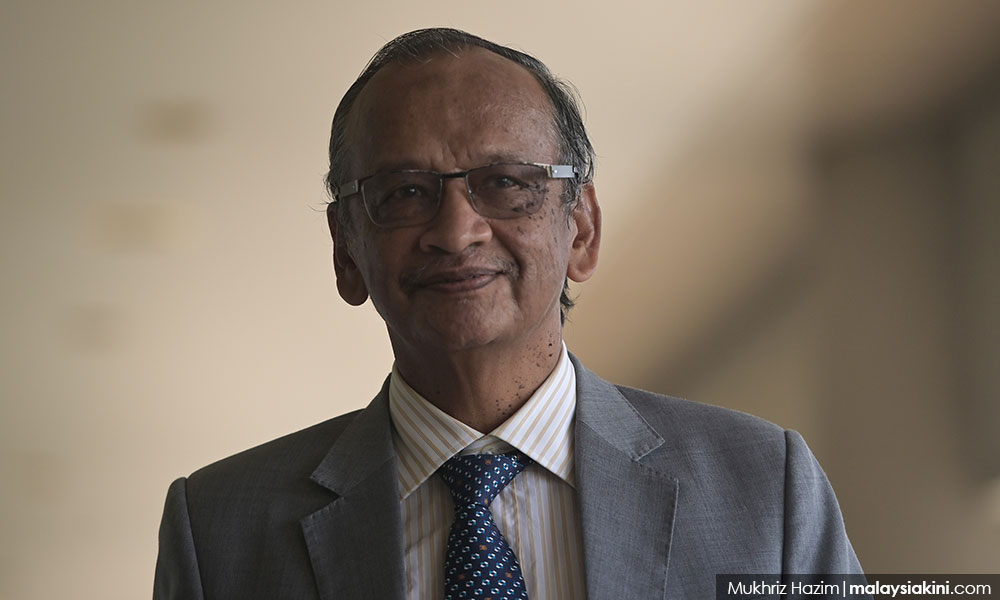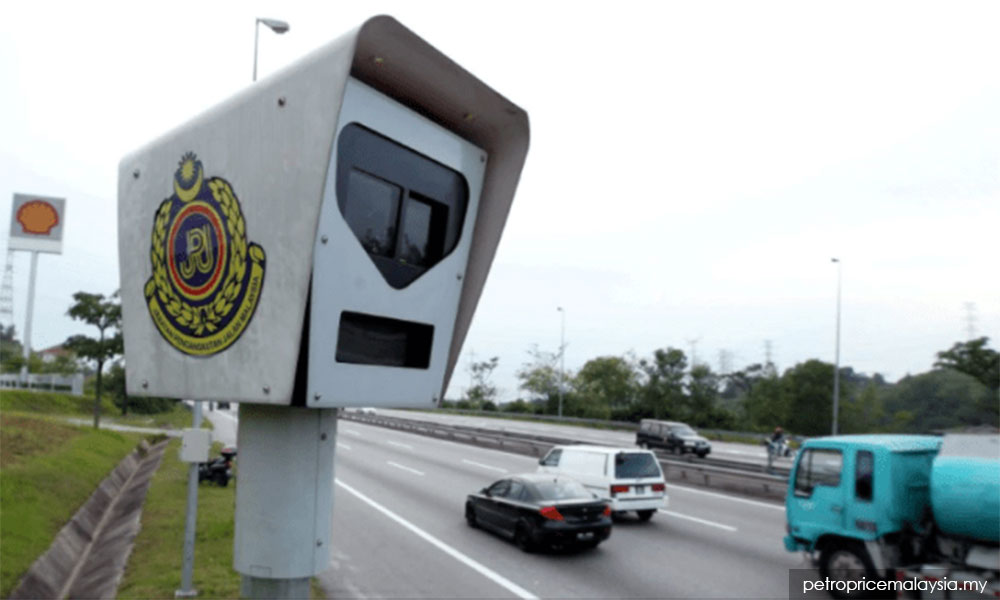PARLIAMENT | The government had indirectly, and unnecessarily, bailed out two firms that rolled out the automatic enforcement system (AES) traffic cameras in 2012, according to the Public Accounts Committee's latest report.
The report, which was tabled in Parliament today, said that the government, through the Armed Forces Fund Board (LTAT) had RM555 million in 2015 to acquire the two AES contractors - Ates Sdn Bhd and Beta Tegap Sdn Bhd.
This was despite audit firm KPMG's valuation of just RM251 million for the two firms. KPMG was engaged to do so by the Finance Ministry in 2013 as part of a due diligence process.
The Special Investigation Committee on Public Governance, Procurement and Finance (JKSTUPKK), which testified before the PAC, said the final decision was made during a meeting between then prime minister Najib Abdul Razak, then minister in the Prime Minister's Department Abdul Wahid Omar, then finance minister II Ahmad Husni Hanadzlah and then transport minister Liow Tiong Lai.
"The meeting was not minuted but the decision was for LTAT to study a proposal to take over AES.
"Based on the LTAT investment panel's meeting (minutes), the proposal for LTAT to take over Ates and Beta Tegap came from the prime minister, who viewed LTAT as a government-linked investment company (GLIC) and will be more acceptable to the people in contrast to having a Finance Minister Incorporated company do so, which may result in the government being accused of a bailout," read the report.

When JKSTUPKK deputy secretariat head Mohd Salim Ali was asked by the PAC if LTAT provided any justification for paying RM555 million, well above KPMG's valuation, he replied in the negative.
Wong Kah Woh (Pakatan Harapan-Ipoh Timur, PAC chairperson): Based on your investigations, what was LTAT's justification?
Mohd Salim: No justification. They said it is between LTAT and the companies. Willing buyer, willing seller.
Azizah Mohd Dun (PN-Beaufort): They are not basing their valuation given by KPMG.
Mohd Salim: Yes.
The JKSTUPKK, in its own classified report, had recommended that the MACC investigates the transaction under the Malaysian Anti-Corruption Commission Act 2009 and the Anti-Money Laundering, Anti-Terrorism Financing and Proceeds of Unlawful Activities Act 2001.
Mohd Salim told the PAC that there were likely "kickbacks" involved in the deal. The JKSTUPKK had also sought Bank Negara's help to investigate the money trail but this has come to nought.
When quizzed by Ramli Mohd Nor (BN-Cameron Highlands), MACC deputy commissioner Nur Hayati Abd Hamid said investigations began in 2018 and are ongoing. Ramli, a former police officer, was livid and demanded that the MACC provide more details.
According to the PAC's report, the AES project was mooted in May 2008 and then transport minister Ong Tee Keat said the project should be privatised due to cost concerns.
The Abdullah Ahmad Badawi administration agreed to this in December 2008, despite opposition from the then chief secretary to the government who believed that the AES project should be regulated by the Transport Ministry and the Road Transport Department (JPJ).

Then auditor-general Ambrin Buang told the PAC that he was of the view that JPJ itself could have easily handled the project.
JKSTUPKK investigator Mohd Tap Salleh told the PAC that he was of the opinion that some parties wanted to make money out of the project.
"(Some people know) there is going to be a lot of money to be made. I think this is - I do not believe in conspiracy theories - but this (project) is to conspire, to cheat Malaysia, actually," he said.
The original plan was to use the AES to issue RM300 in fines for speeding offences and the companies would be paid based on a three-tier structure.
The first tier is RM16 per speeding ticket issued, up to a maximum of RM160 million for both companies combined per year.
The second tier will see half of the balance from the first tier being paid to both companies, up to a maximum of RM540 million per year.
The final tier will see the 7.5 percent of the balance from the second tier being paid to the companies.
Anything that is left goes to the government.
In August 2018, the administration of Dr Mahathir Mohamad decided to let the AES contract lapse and expire naturally on Sept 1. Following this, the government took over all the enforcement cameras.

This led to the LTAT making claims of RM894.3 million from the government for what it claimed to have invested into the AES system.
As of July 2019, the government has reimbursed RM669 million to LTAT.
In a statement today, PAC chairperson Wong Kah Woh said that the PAC was of the opinion that the outsourcing of the AES was "unnecessary" as it could have been handled by JPJ.
Moreover, Putrajaya's order for LTAT to take over Ates and Beta Tegap was a form of "indirect bailout", Wong said.
He said the PAC was also of the opinion that LTAT's acquisition price of RM555 million was "exorbitant" and the fee structure of the original deal was not done in the government's interest.
He said the PAC had recommended that the government declassify the JKSTUPKK report on the AES and that the MACC investigates alleged kickbacks involved in the deal.
The PAC is a powerful committee set up by Parliament to investigate government finances. It can conduct hearings and summon any government official for questioning.
The PAC report on the AES can be viewed here. - Mkini



No comments:
Post a Comment
Note: Only a member of this blog may post a comment.